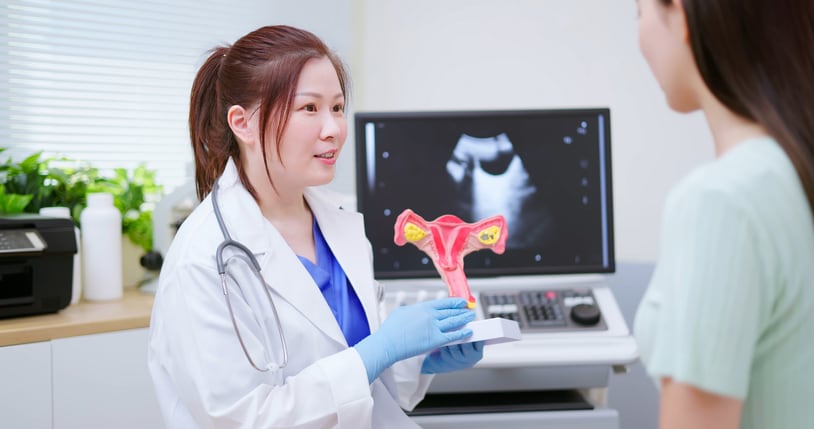Researchers in China conducted a randomised controlled trial (RCT) on PCOS patients with vitamin D deficiency, and found that vitamin D supplementation improved BMI, WHR, and other health markers after 12 weeks.
“Vitamin D supplementation had beneficial effects on metabolic parameters in PCOS women, especially in women with obesity or insulin resistance,” wrote researchers in the Journal of Ovarian Research.
Previous studies confirmed that PCOS is associated with metabolic disorders such as type 2 diabetes (T2DM), cardiovascular disease (CVD), and metabolic syndrome (MS). Worldwide data also confirmed that vitamin D deficiency is common in women with PCOS.
“Moreover, studies have confirmed that vitamin D supplementation could reduce the level of metabolic parameters such as TC [total cholesterol], low-density lipoprotein cholesterol (LDL-C), TG [triglycerides], glycated haemoglobin (HbA1c), as well as decreases homeostasis model assessment of insulin resistance (HOMA-IR) in patients with T2DM,” said researchers.
Glycated haemoglobin shows average blood sugar levels over the past 2-3 months, while HOMA-IR measures the insulin level needed in the blood to maintain normal sugar levels.
Effects of vitamin D on PCOS women with obesity and insulin resistance (IR)
To explore the effects of vitamin D supplementation on metabolic parameters in women with PCOS, 60 women between 21 and 34 years old with PCOS and vitamin D deficiency were recruited for a 12-week RCT.
Participants were divided into two groups. The vitamin D group took vitamin D supplementation (2000 IU/day) and received basic treatment, which included a proper diet and a 30-minute aerobic exercise outdoors at least three times per week. The control group received only basic treatment.
The serum 25(OH)D concentrations, which indicates vitamin D supply to the body, were significantly higher than that of the control group at different time points after vitamin D supplementation.
“The BMI, WHR, insulin concentrations, HOMA-IR, TG, TC and LDL-C concentrations in women of Vitamin D group after 12 weeks of treatment were significantly lower than that in women of control group. The serum insulin concentrations and HOMA-IR at different time points of oral glucose tolerance test (OGTT), serum TG, TC and LDL-C concentrations in women of vitamin D group (obesity) were significantly lower compared with control group (obesity),” said the researchers.
“The BMI, WHR, TG, TC and LDL-C concentration in women of vitamin D group (IR) were significantly lower compared with control group (IR). No significant difference was observed in metabolic parameters between vitamin D group (non-obesity) and control group (non-obesity), and these differences of metabolic parameters were also not observed between vitamin D group (non-IR) and control group (non-IR).”
Therefore, the study showed that vitamin D supplementation improved health markers in PCOS women who were obese or IR but had no significant effect in non-obese and non-IR PCOS women.
“This study provides evidence that vitamin D supplementation significantly increased serum vitamin D concentration in PCOS women with vitamin D deficiency and insufficiency. Furthermore, this RCT study supports beneficial effects of vitamin D supplementation on metabolic parameters in PCOS women, including significant improvements in BMI, WHR, serum insulin concentrations and HOMA-IR, lipid metabolism parameters, especially in women with obesity or IR,” concluded the researchers.
However, the effects of different doses of vitamin D supplementation on metabolic parameters in women with PCOS are not observed in this study.
“Therefore, future studies are required to confirm the effectiveness of vitamin D on metabolic parameters of PCOS women, and the specific regulation mechanism need to be further explored,” said the researchers.
Source: Journal of Ovarian Research
DOI: https://doi.org/10.1186/s13048-024-01473-6
“Effects of vitamin D supplementation on metabolic parameters in women with polycystic ovary syndrome: a randomized controlled trial”
Authors: Xinling Wen, Li Wang et al.


